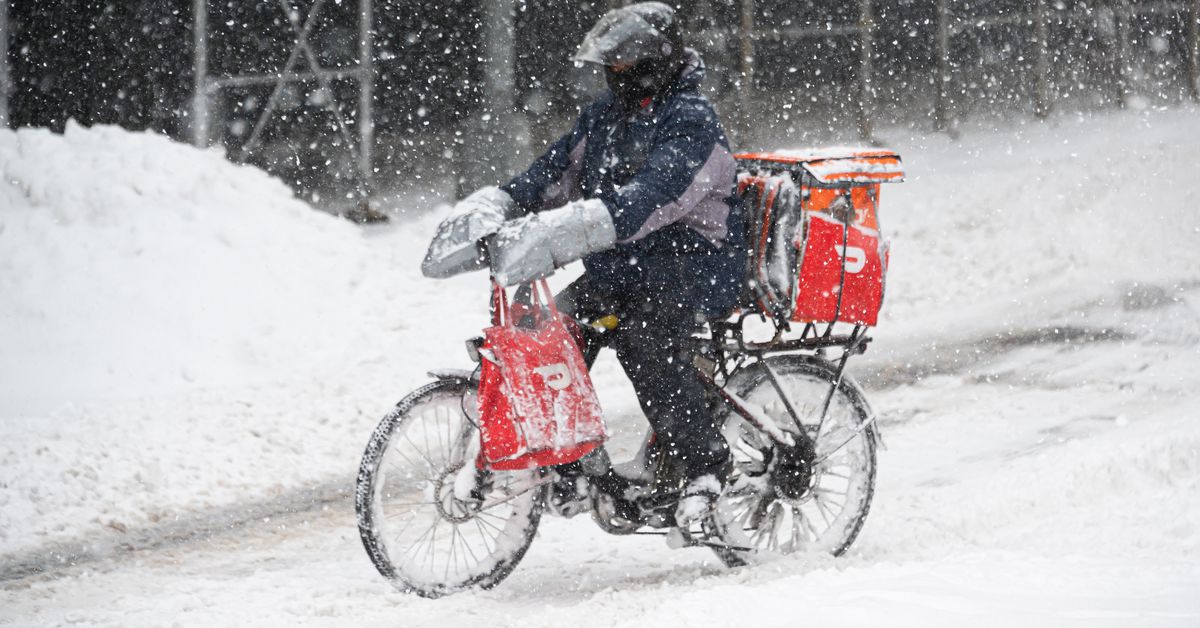“For most markets where DoorDash operates, customers are prompted to tip on the checkout screen, with a middle option already selected by default. If they want to, they can adjust the tip later from the status screen while awaiting their food, or even after it’s delivered. That’s changing today; while blaming New York City’s minimum wage increase for delivery workers, DoorDash announced that for “select markets, including New York City,” tipping is now exclusively a post-checkout option”
It seems so ridiculous given tipping fatigue, that DoorDash is making what should be a given sound like a negative.



close but not quite. Tips are given for excellent service. It’s an extra added bonus for going above and beyond. It should not (and as far as I’m concerned) is not used to pay a person’s base wage.
Minimum wage at restaurants in my state is $2.13 an hour. In such cases, it absolutely is used to pay someone’s wages, which is fucked up, IMO.
If a server’ wage plus tip does not federal minimum wage, the business is required to make up the difference. I’m not saying the $7ish an hour federal minimum is a liveable wage.
What makes this extra stupid, is this means the first $5 or so each hour in tips only removes the obligation from the business owner and does nothing to help the server.
Yes, I agree the whole system is dumb and convoluted intentionally.
That only applies to employees. That does NOT apply to contractors. There is no minimum wage for contractors.
There is no “tipped minimum wage” for most delivery drivers. DD does not have to pay one thin dime if the driver doesn’t make enough tips to reach minimum wage.
Further, the contracted worker is responsible for their own expenses: the IRS says a mile of travel costs $0.655. DD’s usual $2 base pay covers only the first three miles worth of travel expenses, even if the actual travel is much more than 3 miles. I regularly see 12-mile trips with $2 to $2.50 base pay. The driver pays $8 to make these trips; the first $6 of the customer’s tip just goes to expenses before he actually earns anything.
minimum wage at restaurants in washington state is $16.28 starting next year. It’s $15.74 right now. They still expect a 18% tip. Should I just say fuck it and not tip?
Yes
my mindset is that if minimum wage is already a given, then I should be tipping a lot less than standard. Though doing so gets you shit treatment in future visits because tipping is more of a bribe than a remark on good service. Remarkable how all this works, isn’t it?
deleted by creator
You’re just cheap.
That’s simply not the way it works and you know it. It’s been enshrined as a tenet of economics at this point.
Honestly, I completely agree with this.
Tipping should be a bonus, something that happens once in a blue moon. Not the norm.
Your statement is accurate and reasonable for servers, who are employees of the restaurant, and are guaranteed to earn at least minimum wage.
But we are talking about delivery drivers. Drivers are generally contractors, not employees. There is no minimum wage for contractors. Further, contractors are responsible for their own expenses. The IRS says a mile of travel costs $0.655. DD typically pays a base rate of $2 per delivery, whether around the block, or 20 miles away. That $2 fee covers 3 miles of expenses, which is about a 2-mile delivery, plus travel to the store.
Typically, the driver ends up paying all of the base pay in travel expenses. The only part of his compensation he actually gets to keep is the tip.